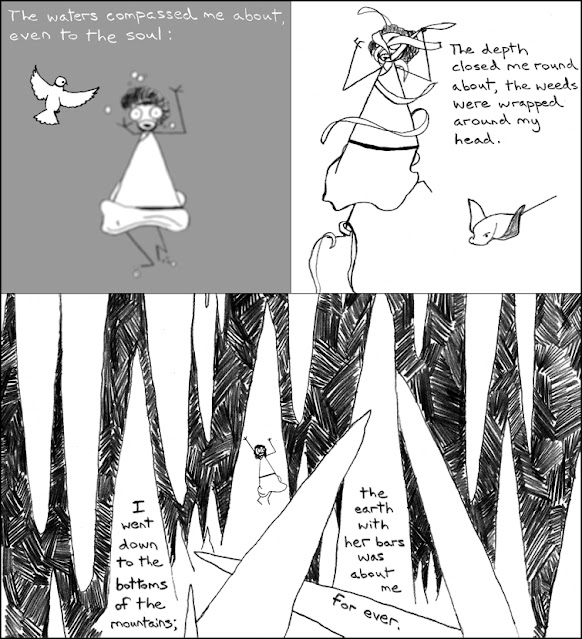“Your laws endure to this day for all things serve you.” -Psalm 119:91
Lately I've been memorizing the first questions of the Westminster Catechism. I'm not sure if it's a counter-reaction to leaving our local church, to the pandemic, or a vestige of my Catholic upbringing, but the discipline and precision of the wording is good--calibrating my mind and heart to bigger truths.
The catechism speaks of the providence of God, an alternatingly comforting and unsettling concept that is addressed in Questions 8, 11, and 12.
Question 11: What are God's works of providence?
Answer: God's works of providence are his most holy, wise, and powerful preserving and governing all His creatures and all their actions.
Alistair Begg cites God's providence as one of the overarching truths in Jonah:
"Now, we ought not to miss, just in passing, that whether it is a gigantic fish or whether it is a small worm, what we’re discovering here is that God is at work directing everything to its appointed end."
I see this thread woven throughout the book in subtle and not so subtle regards. The text says God appointed the fish to swallow Jonah. Appointed suggests the intentionality and dominion He manifests over His creation.
"Now the LORD had prepared (appointed, destined) a great fish to swallow Jonah. And Jonah was in the stomach of the fish three days and three nights. Jonah 1:17 Amplified
 |
| I love the layout and conceptualization of this part of Jonah's journey from the cartoonist Eyeteeth. Check out his book of Jonah illustrations here. |
Begg asserts that Jonah's prayer in Jonah 2 demonstrates someone who knows the scriptures well and has internalized them. This is his explanation of why Jonah's prayer is a medley of psalms and other scriptures mashed together.
Begg's comments on prayer were some of my favorites in this series:
"I’ve been greatly helped by some of the things that William Still said concerning prayer. I want to say them to you this morning, recognizing that once they’re on tape it will be a benefit to those who then listen to the tape. This is what he says: “Prayer for the Christian is a matter of believing that God is, and that He does respond to those who believe in Him.” That’s the start. In other words, there is nothing vague, there is nothing amorphous about the notion with which the Christian begins to approach God. We approach God believing that he is, and that although we cannot see him, nevertheless he hears our prayers, and he also is the God who responds.
Says Still,
Now the real Christian is indwelt by the Holy Spirit, and the Holy Spirit is God, and is, naturally, [therefore] in vital touch with the Father and the Son. On the basis that we know something about this God from the Holy Scriptures, we begin to speak to Him internally, and should do so as naturally, in a sense, as we speak to ourselves—our “better” selves, born of God in Christ Jesus. That’s prayer. But we have to believe that He is there and listening.
Not that by believing we make him there; but we have to remind ourselves that this is not an exercise in futility. We’re not speaking out into the night; we’re not simply getting things off our chest. We’re not simply meditating, you know, and sort of doing an exercise in deep breathing with some words that go along with it. No, we remind ourselves that God listens to prayer, that he is there and that he does hear us. He neither slumbers nor sleeps." -Alistair Begg, "Salvation Comes from the Lord," Overboard Series.
This concept of "believing He is there and listening" makes a type of intuitive sense to me. Prayer offers us opportunity to act on our faith, and the investment of time and energy illuminates and grows our faith life.
Note the consistency of the transitions "Now...So" and the verbs "appointed...commanded." They highlight the connectivity of action and reaction between God, Jonah, and the fish.
Jonah's time in the fish garners much of the attention paid to this book, but as Jack Abeelen aptly points out, the real miracle is that the city of Nineveh repents! We are easily more impressed by physical miracles than spiritual ones, a fact Jesus also lamented (Matthew 9:5-6).

No comments:
Post a Comment